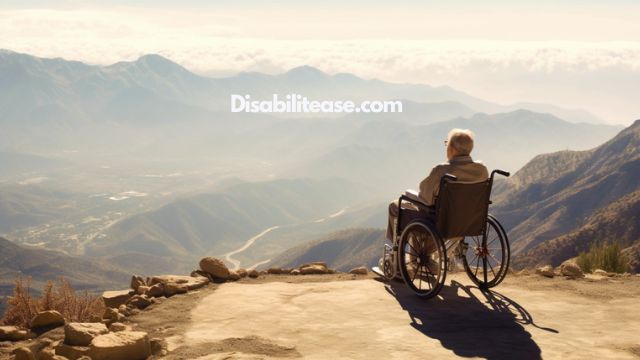Traveling to remote destinations can be an exciting and enriching experience, but it can also be difficult for disabled and elderly people. If you or someone you love falls into these categories, don’t worry!

There are ways to make traveling easier. With the right preparation and planning, disabled and elderly people can take a vacation just like anyone else.
In this article we’ll discuss how to make travel plans that work for everyone so you don’t miss out on any of life’s adventures!
Table of Contents
Preparation and Planning
Preparing and planning ahead of time can mean the difference between a successful journey for elderly and disabled travelers, and one that falls short.
When getting ready to travel to a remote destination, it’s important to carefully consider what packing supplies are necessary, as well as researching options for transportation and lodging. This will ensure that you have everything you need during your trip, while avoiding any unpleasant surprises or situations.
For those who require special accommodations, such as wheelchair accessibility or medical assistance, it’s necessary to research ahead of time in order to determine what services are available at your destination. You should also look into any discounts or programs that may be applicable for disabled travelers in order to reduce costs.
Making sure that all necessary arrangements are made prior to arriving at the destination can help make the entire experience more enjoyable.
When traveling long distances with an elderly or disabled person, having a plan B in place can provide peace of mind should something unforeseen occur along the way. It helps to have contacts on hand who could assist if needed, and being aware of emergency services available at each stop can help alleviate stress if an unanticipated situation arises.
Taking these extra steps before leaving home can make all the difference when it comes to making travel plans for elderly and disabled people go smoothly.
Finding Accessible Transportation

Finding accessible transportation can be a challenge, but it’s possible. When looking for transportation for disabled and elderly people, it’s important to consider the need for storing equipment such as wheelchairs or walkers. Additionally, you may want to consider hiring assistance if needed.
However, not all public transit services allow passengers to store their equipment in a safe place while traveling. This means that researching available options ahead of time is essential.
When searching for accessible transportation options, make sure to look at any special services offered by airlines and other companies that may be able to accommodate disability requirements such as wheelchair access or specialized seating arrangements. It’s also important to contact your chosen destination ahead of time and ask about any special accommodations they provide before booking a reservation.
Accessible travel doesn’t have to be difficult! With proper research and planning, anyone can find the best option for their needs so they can enjoy their journey without worry.
Tips for a Smooth Trip
Planning ahead and taking certain precautions can help ensure a smooth trip for those with disabilities or special needs. From packing the necessary supplies to researching available resources, there are many steps that can be taken to enhance independence, improve mobility, and make travel easier.
Here are a few helpful tips:
- Check your destination for accessibility features such as wheelchair-friendly routes, elevators/lifts, ramps, adapted bathrooms, etc.
- Ensure you have all the necessary documents such as prescriptions and medical insurance forms.
- Bring along any special equipment needed for your comfort or safety such as wheelchairs, walkers or canes.
- Call ahead of time to ask about accessible transportation options at your destination.
These simple steps can make a world of difference when travelling with disabilities or special needs. Doing so helps promote an enjoyable experience by ensuring that everything is taken care of prior to the trip – from planning and logistics to accommodations. With proper preparation in place before leaving home, travellers with disabilities and elderly people can look forward to safe travels and wonderful memories!
Conclusion
You’ve done the work to prepare and plan your trip, and you’re ready to go. With a bit of research, patience, and flexibility, there’s no reason why disabled or elderly people can’t travel to remote destinations.
It may take some extra planning and effort, but it can be done! You don’t have to miss out on experiences just because you have mobility issues – the world is yours for the taking.
So don’t let anything hold you back – make those memories today!

Hi, my name is Eddie, I am a professional trainer specializing in the elderly population and I’m also a website designer. I love training in the gym, going to the beach, traveling, and having good food.
I combined my love for sport and website designing to make “DisabilitEase” whose purpose is to help elderly and disabled people live a more full and active life, have more fun, and enjoy their unique journey despite any disability.



